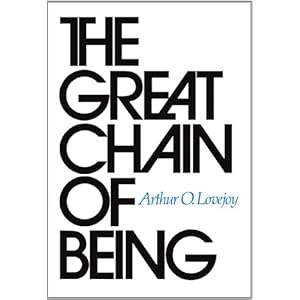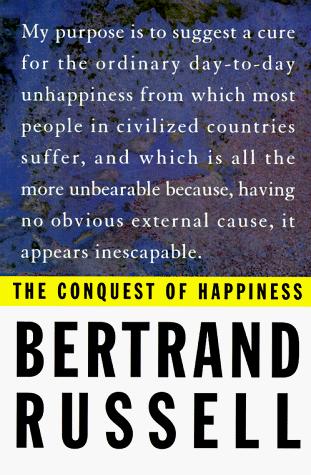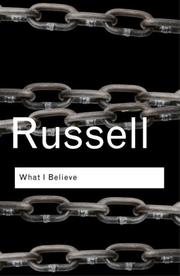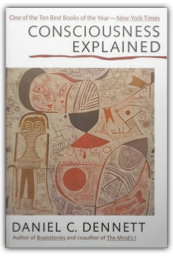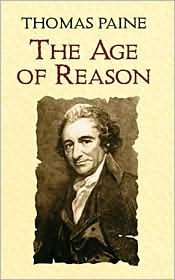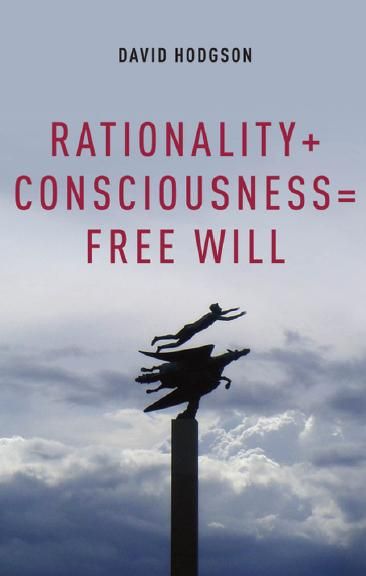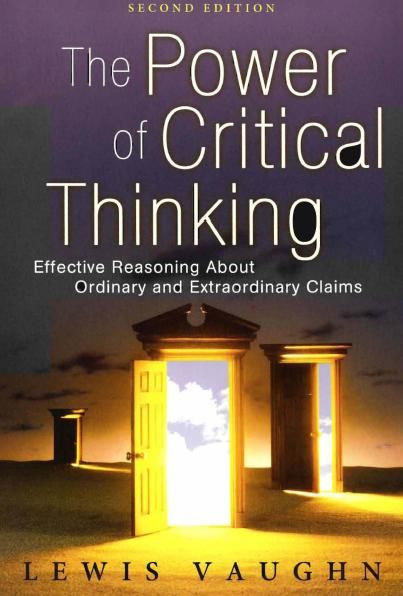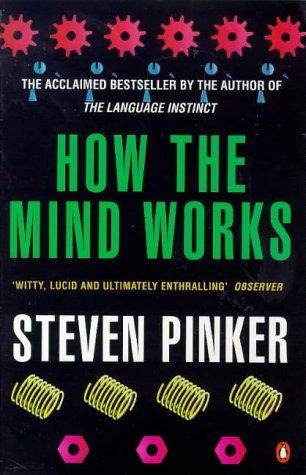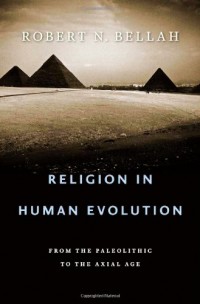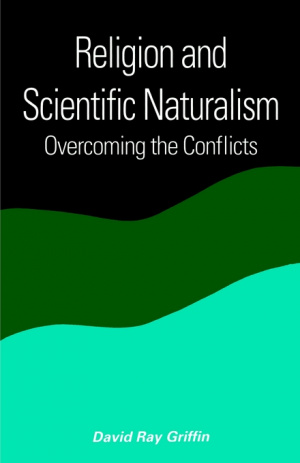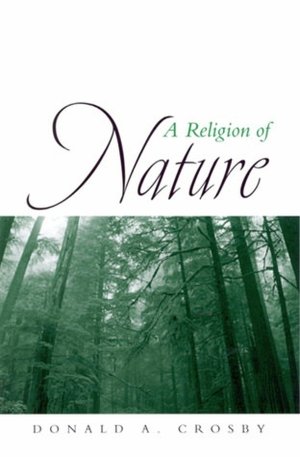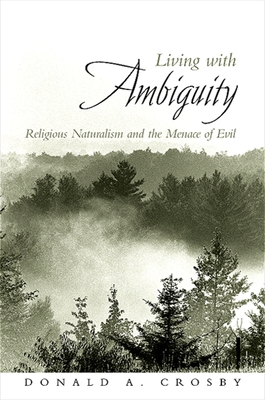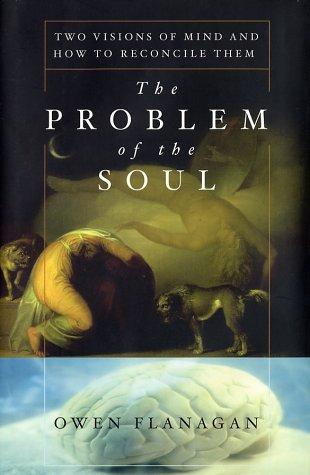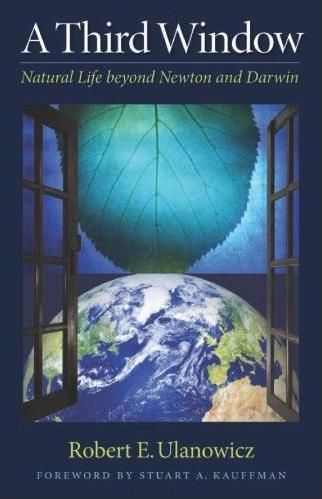Paul Henri D'Holbach - Good sensePublished in 1772 this discourse by Paul Henri Thiry challenges religion. His atheistic views on the nature of God, the existence of a soul, miracles, priests, heaven and hell, and the divine right of kings are discussed in detail. Good Sense is a comprehensive study of atheism.
83 pages, 414 KB, PDF.
Kod:
http://www.4shared.com/office/hlVURuT1/Paul_Henri_DHolbach_-_Good_sen.html
Bertrand Russell - Analysis Of Mind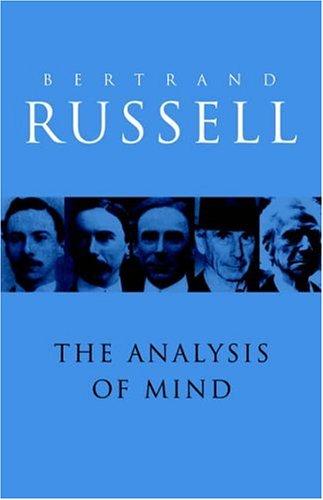
This book has grown out of an attempt to harmonize two different tendencies, one in psychology, the other in physics, with both of which I find myself in sympathy, although at first sight they might seem inconsistent. On the one hand, many psychologists, especially those of the behaviourist school, tend to adopt what is essentially a materialistic position, as a matter of method if not of metaphysics. They make psychology increasingly dependent on physiology and external observation, and tend to think of matter as something much more solid and indubitable than mind. Meanwhile the physicists, especially Einstein and other exponents of the theory of relativity, have been making "matter" less and less material. Their world consists of "events," from which "matter" is derived by a logical construction. I think that what has permanent value in the outlook of the behaviourists is the feeling that physics is the most fundamental science at present in existence. But this position cannot be called materialistic, if, as seems to be the case, physics does not assume the existence of matter.
242 pages, 1.12 MB, PDF.
Kod:
http://www.4shared.com/office/NAAgn8bU/Bertrand_Russell_-_Analysis_Of.html
D. Q. Mclnerny - Being Logical, A Guide To Good Thinking 
"In logic, as in life, it is the obvious that most often bears emphasizing, because it so easily escapes our notice," McInerny argues in this pithy guide to applying logical thinking to everyday life. Modeled after Strunk and White’s indispensable handbook, The Elements of Style, McInerny’s primer offers valuable counsel on making a clear and effective point. He calls attention to the tremendous importance that language holds in the crafting and presentation of an argument, advising readers to "make your words as precise and sharply focused as possible" and to keep arguments, or at least their essential purpose, simple. Readers need not have a background in philosophy to follow McInerny’s remarkably comprehensible explanation of the methods used to construct a valid case, including the syllogistic argument, the conjunctive and disjunctive arguments and the conditional argument. The author also dedicates considerable discussion to the sources and the principal forms of illogical thinking, from such common ruses as begging the question and using tears as a diversionary tactic to the more ethically questionable ad hominem strategy, in which a person ignores an argument and attacks his opponent’s character instead. McInerny recommends that people hone their logical thinking skills by using them in real life situations, but perhaps one of the best ways his audience can learn to clearly express their views is by examining the crisp, articulate writing in this slender but richly informative guide.
131 pages, 2.37 MB, PDF. Scan.
Kod:
http://www.4shared.com/office/_TNwPA0u/D_Q_Mclnerny_-_Being_Logical_A.html
Rick Hanson - Just One Thing, Developing A Buddha Brain One Simple Practice at a Time
You’ve heard the expression, “It’s the little things that count.” Research has shown that little daily practices can change the way your brain works, too. This book offers simple brain-training practices you can do every day to protect against stress, lift your mood, and find greater emotional resilience. Just One Thing is a treasure chest of over fifty practices created specifically to deepen your sense of well-being and unconditional happiness.
Just one practice each day can help you:
• Be good to yourself
• Enjoy life as it is
• Build on your strengths
• Be more effective at home and work
• Make peace with your emotions
242 pages, 1.21 MB, PDF.
Kod:
http://www.4shared.com/office/wZO_dOER/Rick_Hanson_-_Just_One_Thing_D.html
Valerie Tiberius - The Reflective Life, Living Wisely With Our Limits
What can we do to live life wisely? You might think that the answer would be to think and reflect more. But this is not Valerie Tiberius's answer. On her view, when we really take account of what we are like - when we recognize our psychological limits - we will see that too much thinking and reflecting is bad for us. Instead, we need to think and reflect better. This means that we need to develop wisdom: we need to care about things that will sustain us and give us good experiences, we need to have perspective on our successes and failures, and we need to be moderately self-aware and cautiously optimistic about human nature. Further, we need to know when to think about our values, character, and choices, and when not to. A crucial part of wisdom, Tiberius maintains, is knowing when to stop reflecting and get lost in the experience.
The Reflective Life also considers the issue of how to philosophize about how to live. A recent trend in moral philosophy has been toward what is sometimes called 'empirically informed ethics'. This methodology has not yet caught on in normative ethics, primarily because we cannot conclude anything about what ought to be the case from the facts about what is. Tiberius agrees that this leap should be avoided, but argues that empirical psychology can inform our philosophical theories in interesting ways.
235 pages, 764 KB, PDF.
Kod:
http://www.4shared.com/office/OVNKB7xH/Valerie_Tiberius_-_The_Reflect.html
The Good in Nature and Humanity, Connecting Science, Religion, and Spirituality with the Natural World
Scientists, theologians, and the spiritually inclined, as well as all those concerned with humanity's increasingly widespread environmental impact, are beginning to recognize that our ongoing abuse of the earth diminishes our moral as well as our material condition. Many people are coming to believe that strengthening the bonds among spirituality, science, and the natural world offers an important key to addressing the pervasive environmental problems we face. The Good in Nature and Humanity brings together 20 leading thinkers and writers - including Ursuia Goodenough, Lynn Margulis, Dorion Sagan, Carl Safina, David Petersen, Wendell Berry, Terry Tempest Williams, and Barry Lopez - to examine the divide between faith and reason, and to seek a means for developing an environmental ethic that will help us confront two of our most imperiling crises; global environmental destruction and an impoverished spirituality. The book explores the ways in which science, spirit, and religion can guide the experience and understanding of our ongoing relationship with the natural world and examines how the integration of science and spirituality can equip us to make wiser choices in using and managing the natural environment. The book also provides compelling stories that offer a narrative understanding of the relations among science, spirit, and nature. Grounded in the premise that neither science nor religion can by itself resolve the prevailing malaise of environmental and moral decline, contributors seek viable approaches to averting environmental catastrophe and, more positively, to achieving a more harmonious relationship with the natural world. By bridging the gap between the rational and the religious through the concern of each for understanding the human relation to creation, The Good in Nature and Humanity offers an important means for pursuing the quest for a more secure and meaningful world.
297 pages, 1.58 MB, PDF.
Kod:
http://www.4shared.com/office/QYa2cnm7/The_Good_in_Nature_and_Humanit.html
Naomi Reshotko - Socratic Virtue, Making the Best of the Neither Good Nor Bad
Socrates was not a moral philosopher. Instead he was a theorist who showed how human desire and human knowledge complement one another in the pursuit of human happiness. His theory allowed him to demonstrate that actions and objects have no value other than that which they derive from their employment by individuals who, inevitably, desire their own happiness and have the knowledge to use actions and objects as a means for its attainment. The result is a naturalized, practical, and demystified account of good and bad, and right and wrong. Professor Reshotko presents a newly-envisioned Socratic theory residing at the intersection of the philosophy of mind and ethics. It makes an important contribution to the study of the Platonic dialogues and will also interest all scholars of ethics and moral psychology.
220 pages, 1.27 MB, PDF.
Kod:
http://www.4shared.com/office/0nke1U_x/Naomi_Reshotko_-_Socratic_Virt.html
Richard Norman - On Humanism
Albert Einstein, Isaac Asimov, E.M. Forster, Bertrand Russell, and Gloria Steinem all declared themselves humanists. What is humanism and why does it matter? Is there any doctrine every humanist must hold? If it rejects religion, what does it offer in its place? Have the twentieth century's crimes against humanity spelled the end for humanism?
On Humanism is a timely and powerfully argued philosophical defence of humanism. It is also an impassioned plea that we turn to ourselves, not religion, if we want to answer Socrates' age-old question: what is the best kind of life to lead? Although humanism has much in common with science, Richard Norman shows that it is far from a denial of the more mysterious, fragile side of being human. He deals with big questions such as the environment, Darwinism and 'creation science', euthanasia and abortion, and then argues that it is ultimately through the human capacity for art, literature and the imagination that humanism is a powerful alternative to religious belief.
Drawing on a varied range of examples from Aristotle to Primo Levi and the novels of Virginia Woolf and Graham Swift, On Humanism is a lucid and much needed reflection on this much talked about but little understood phenomenon.
177 pages, 1.10 MB, PDF.
Kod:
http://www.4shared.com/office/YEPzefL7/Richard_Norman_-_On_Humanism.html
Leonard Mlodinow - The Drunkard's Walk, How Randomness Rules Our Lives
In this irreverent and illuminating book, acclaimed writer and scientist Leonard Mlodinow shows us how randomness, change, and probability reveal a tremendous amount about our daily lives, and how we misunderstand the significance of everything from a casual conversation to a major financial setback. As a result, successes and failures in life are often attributed to clear and obvious cases, when in actuality they are more profoundly influenced by chance.
The rise and fall of your favorite movie star of the most reviled CEO--in fact, of all our destinies--reflects as much as planning and innate abilities. Even the legendary Roger Maris, who beat Babe Ruth's single-season home run record, was in all likelihood not great but just lucky. And it might be shocking to realize that you are twice as likely to be killed in a car accident on your way to buying a lottery ticket than you are to win the lottery.
How could it have happened that a wine was given five out of five stars, the highest rating, in one journal and in another it was called the worst wine of the decade? Mlodinow vividly demonstrates how wine ratings, school grades, political polls, and many other things in daily life are less reliable than we believe. By showing us the true nature of change and revealing the psychological illusions that cause us to misjudge the world around us, Mlodinow gives fresh insight into what is really meaningful and how we can make decisions based on a deeper truth. From the classroom to the courtroom, from financial markets to supermarkets, from the doctor's office to the Oval Office, Mlodinow's insights will intrigue, awe, and inspire.
Offering readers not only a tour of randomness, chance, and probability but also a new way of looking at the world, this original, unexpected journey reminds us that much in our lives is about as predictable as the steps of a stumbling man fresh from a night at the bar.
268 pages, 1.09 MB, PDF.
Kod:
http://www.4shared.com/office/_FYZOQRu/Leonard_Mlodinow_-_The_Drunkar.html
Mitchell Aboulafia - Transcendence, On Self-Determination and Cosmopolitanism
Notions of self-determination are central to modern politics, yet the relationship between the self-determination of individuals and peoples has not been adequately addressed, nor adequately allied to cosmopolitanism. Transcendence seeks to rectify this by offering an original theory of self and society. It highlights overlooked affinities between existentialism and pragmatism and compares figures central to these traditions. The book's guiding thread is a unique model of the social development of the self that is indebted to the pragmatist George Herbert Mead. Drawing on the work of thinkers from both sides of the Atlantic—Hegel, William James, Dewey, Du Bois, Sartre, Marcuse, Bourdieu, Rorty, Neil Gross, and Jean-Baker Miller—and according supporting roles to Adam Smith, Habermas, Herder, Charles Taylor, and Simone de Beauvoir, Aboulafia combines European and American traditions of self-determination and cosmopolitanism in a new and persuasive way.
215 pages, 1.18 MB, PDF.
Kod:
http://www.4shared.com/office/uDf1h_BC/Mitchell_Aboulafia_-_Transcend.html
Identity, Character, and Morality, Essays in Moral Psychology
Many philosophers believe that normative ethics is in principle independent of psychology. By contrast, the authors of these essays explore the interconnections between psychology and moral theory. They investigate the psychological constraints on realizable ethical ideals and articulate the psychological assumptions behind traditional ethics. They also examine the ways in which the basic architecture of the mind, core emotions, patterns of individual development, social psychology, and the limits on human capacities for rational deliberation affect morality.Owen Flanagan is Professor of Philosophy at Duke University. Am�lie Oksenberg Rorty is Professor of Philosophy at Mount Holyoke College.
485 pages, 1.04 MB, PDF.
Kod:
http://www.4shared.com/office/nI3nqlIE/Identity_Character_and_Moralit.html
Corliss Lamont - The Philosophy of Humanism
Released by Humanist Press in its degenderized eighth edition, this powerful book is the definitive study of the history and growth of the humanist movement in North America. Renowned philosopher and activist Corliss Lamont offers a vigorous argument for humanism and provides an affirmative, intelligent guidebook for shaping a better life in today's complex world.
405 pages, 1.15 MB, PDF.
Kod:
http://www.4shared.com/office/yhVb4aV4/Corliss_Lamont_-_The_Philosoph.html
Infinity, New Research Frontiers
"The infinite! No other question has ever moved so profoundly the spirit of man; no other idea has so fruitfully stimulated his intellect; yet no other concept stands in greater need of clarification than that of the infinite." - David Hilbert This interdisciplinary study of infinity explores the concept through the prism of mathematics and then offers more expansive investigations in areas beyond mathematical boundaries to reflect the broader, deeper implications of infinity for human intellectual thought. More than a dozen world‐renowned researchers in the fields of mathematics, physics, cosmology, philosophy, and theology offer a rich intellectual exchange among various current viewpoints, rather than displaying a static picture of accepted views on infinity. The book starts with a historical examination of the transformation of infinity from a philosophical and theological study to one dominated by mathematics. It then offers technical discussions on the understanding of mathematical infinity. Following this, the book considers the perspectives of physics and cosmology: Can infinity be found in the real universe? Finally, the book returns to questions of philosophical and theological aspects of infinity.
327 pages, 1.90 MB, PDF.
Kod:
http://www.4shared.com/office/SYw5s-mp/Infinity_New_Research_Frontier.html
Flourishing, Positive Psychology and the Life Well-Lived
Psychology has made great strides in understanding mental illness, but how much has it learned about mental health? When people want to reflect upon the good life and how to live it, they turn to philosophers and novelists, not psychologists. The emerging field of positive psychology aims to redress this imbalance. In Flourishing, distinguished scholars apply scientific analyses to study the good life, expanding the scope of social and psychological research to include happiness, well-being, courage, citizenship, play, and the satisfactions of healthy work and healthy relationships. Their findings reveal that a sense of meaning and a feeling of richness emerge in life as people immerse themselves in activities, relationships, and the pursuit of intrinsically satisfying goals like overcoming adversity or serving one's community through volunteering. This provocative book will further define this evolving field.
286 pages, 1.46 MB, PDF.
Kod:
http://www.4shared.com/office/Er1rPfZe/Flourishing_Positive_Psycholog.html
Jerome A. Popp - Evolution's First Philosopher, John Dewey and the Continuity of Nature
John Dewey was the first philosopher to recognize that Darwin's thesis about natural selection not only required us to change how we think about ourselves and the life forms around us, but also required a markedly different approach to philosophy. Evolution's First Philosopher shows how Dewey's arguments arose from his recognition of the continuity of natural selection and mindedness, from which he developed his concept of growth. Growth, for Dewey, has no end beyond itself and forms the basis of a naturalized theory of ethics. While other philosophers gave some attention to evolutionary theory, it was Dewey alone who saw that Darwinism provides the basis for a naturalized theory of meaning. This, in turn, portends a new account of knowledge, ethics, and democracy. To clarify evolution's conception of natural selection, Jerome A. Popp looks at brain science and examines the relationship between the genome and experience in terms of the contemporary concepts of preparedness and plasticity. This research shows how comprehensive and penetrating Dewey's thought was in terms of further consequences for the philosophical method entailed by Darwin's thesis. Dewey's foresight is further legitimated when Popp places his work within the context of the current thought of Daniel Dennett.
170 pages, 1.80 MB, PDF.
Kod:
http://www.4shared.com/office/TKzMqoOo/Jerome_A_Popp_-_Evolutions_Fir.html
More from
RATIONAL SPIRITUALITY folder:
Kod:
http://www.4shared.com/u/F6GHDaug/Illuminati.html?sId=I3vlzhtJZCd5PYCS






](./images/smilies/eusa_wall.gif)





